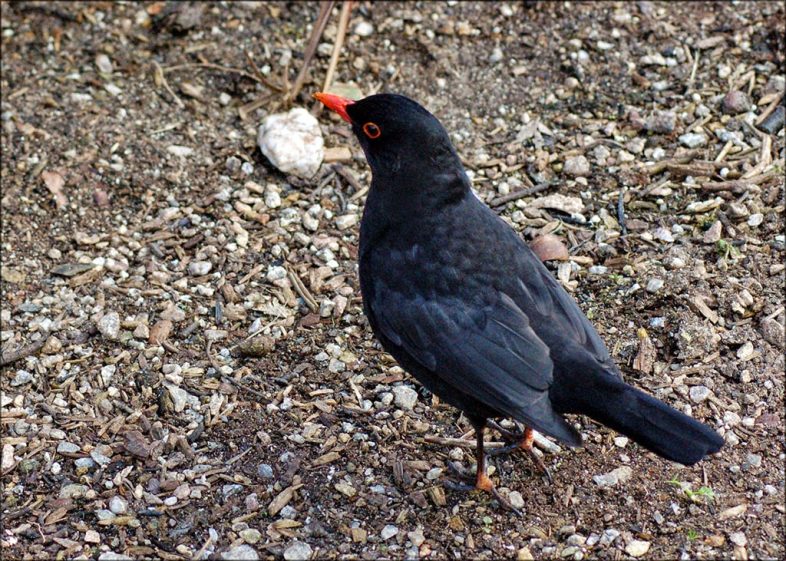Do they work?
Some people think they do. Others are not sure but the majority seems to think it is a waste of time. If you really love somebody make him or her know of your feeling. Ask for a date or go all the way, if possible. This writer knows of such a case. After weeks of steeling himself, he went to the girl after class and said, “I’d like to ask for something.” When she asked, “What is it?” He said, “Your heart”.
They already have a son and a girl is expected in July.
Spells are very ancient. The attested spells include some in Akkadian:
►aban rāmi: [Religion] love charm.
‘Aban’ is an extension of the root that means “son” and “building”. What’s the connection between the two? They both go up, the son with age and the building with rows of stones.
Rāmi is an extension of *Rʼ. Like most roots this is a category with several critical meanings including “seeing”.
What’s the connection between seeing and love?
Apparently, love in ancient times began with seeing the loved one. With or without the essential G-String, girls and boys swam together in the sea, small lakes or water holes.
The time of seeking a wife in absentia had not arrived and wouldn’t for thousands of years more. Both boys and girls had to see each other first, and then decide. The time of wrapped bodies came thousands of years later.
And there’s a good reason.
From the root *Rʼ is the extension *Rʼm (vocalisation > Raam): “compassion, pity, mercy”. From the same root *Rʼf (vocalisation > Raaf): “be merciful toward; compassionate; has compassion or pity for; have mercy upon”.
This is what love is about but not just between boys and girls. With the Pill thousands of years away, compassion is extended in a relatively very time to their offspring. In extant Arabic ‘Raam’ has a number of meanings including “to be compassionate [like a mum when feeding her baby and looking after him/her]; raam: a boy, a child; to remain close to, to love, to become familiar with; to mend or fix; to treat a wound, to help somebody heal”, etc.
Reem, a very popular name, is a variation of ‘raam’ from the same root, and so are Rima, Rama, Mary, Maryam/Miryam/Miriam and other similar names but not Rami (m.) which is from a different root.
Another extension is *Rʼq: “pure, salvia” but not spit – the word for spit is ‘bazaq’ and ‘bazaqa’ is “a snail”. The word *Rʼq is used to describe the state of a mouth watering and usually applies to the salvia of girls not boys, so it seems girls were thought of as made of sugar and spice and everything nice before the nursrsery rhyme was known.
*Rʼ is a glorious root the meanings of which comprise: “to see, to love, compassion, pity, nursing, mending (relations), healing a wound, closeness and the pure liquid in a girl’s mouth”.
The prerequisite for all of this is for boys and girls to meet first and like each other second.
In later times this was not possible for a number of reasons. The girl may not like the boy or vice versa. Something else had to be done and that included spells and magic hence aban rāmi which seem to have the literal meaning “to bring the love to the open or to be visible”.
The following small list is in Akkadian under “charm” with this writer’s comments between brackets:
1. inbu: [Country → Fruits] 1) a fruit, an embryo, a flower (The root is *NB which means “to grow” and it applies to plants and children. So this seems to mean the fruit of a relationship).
2. kuzbānu: attractive, having sex-appeal, charming (The root is *ZB “a penis” which made sense for our ancestors since what is attractive to the penis is attractive to the holder of this joystick).
3. kuzbu: [Human → Body] charm, charisma, allure, attractiveness, (sex) appeal, charms of a woman, a goddess; female genitalia; sexual potency of a man, sexuality (Same here, it seems, since our ancestors thought an attractive girl would have an attractive cunt).
4. lalû: [Measures] 1) plenty, exuberance, wealth, affluence, plethora, luxury, luxuriance / lush vegetation; 2) charms / sexual attractiveness especially for a woman or goddess, rarely for a man (The root is *Lʼ originally the twinkling of stars and by implication things that shimmer or twinkle such as stars, pearls gems, things of white colour and by extension girls with twinkling eyes and “luxuriant” body parts, hearts, souls, etc.).
5. mušlaḫḫatu: [Professions] female snake-charmer.
6. nakālu: [Religion → Magic] to beguile, to charm, to enchant , to bewitch, to fascinate, to captivate, to mesmerize / to hold spellbound, to delude? (The root is *NK “to screw” but this extension (nakālu) could mean “make an example of; punish severely; torture” which could describe some types of oppressive or overwhelming love).
7. ṣaiāḫu: [Human → Senses] delicious, tasty, palatable, savory, tasteful, toothsome, scrumptious, sapid, appetizing, luscious, delightful, dainty, enjoyable, fancy, lovely / charming / ravishing, agreeable, pleasant / pleasing / pleasurable, entertaining (?), desirable, elegant, interesting (We need to look deeper into this curious extension but it looks it is rooted in *ṢḤ which has several meanings including “correct, bright, clear [as in clear sky or mood]; sun breaking after a rain, etc.).
8. šiptu: [Religion → Magic] 1) an incantation, a spell / a charm; rēš šiptu: beginning of the spell; šiptu balātim: spell for life; 2) against disease …: nadû šiptu: to cast a spell; manû šiptu: to recite a spell (The root of this extension is *ŠP. It is migrated into Arabic with an ‘f’ *ŠF “To be ‘šiptu’ is 1) “to be afflicted by love or sadness; to lose weight due to love or sadness, or to lose his mind.” The word also means to look through a transparent curtain, or attempt by extension to see what the future holds).
9. zalāqu: [Nature] 1) shiny stone; 2) a trinket, a charm? (The Akkadian translators are not sure of the meaning but the word is from the root *ZL “to fall, to slip”. If descriptive of a spill then it would be a very light spell that entails causing the loved one, or somebody else, to slip and fall without much harm, maybe to rush to help).
10. saḫāru: [Professions] 1) to go round especially in search of something / someone, to beg / to go round begging; 2) magic: to seek out / to bewitch someone (This is the word used to describe magic in general and it would apply to spells and potions. The word is also used to describe the act of natural bewitching of a girl or a boy due to extreme beauty or attractiveness. It should be noted this extension consists of two different roots, the second, ‘ḫār’, is concerned with magic. One of its meanings is ‘hot’ probably because some types of magic entailed using fire of some sort).
11. zikurudû: [Religion] magical rite (This word means nothing more than “reciting” but it could be important as it implies repeating or reciting certain words in certain orders for spells but nothing else. Other types of spells include tying one or more knots in a rope to inflict the hoped for illness or deformaity. A story in the Quran is about a woman who tried to betwitch Prophet Mohammad with a piece of robe called “massad”. The word ia ttested in Akkadian: mašādu: [Human → Hygiene] to strike with palsy (N) to be striken.
One of the strangest words we came across in Akkadian is this:
šuḫarruru: [Human → Speech] 1) to be deathly still; 2) to be quite silent, to be dumb / mute; 3): adjective: silent.
The word is known in Syria as ‘shahrur’ “a blackbird”, also a common European songbird. ‘Shahhar’ means “soot” or “to blacken with soot”, a common practice by women losing a child, a husband or a very close relative.
The presence of this bird, especially those with red beaks, in the vicinity of a house was considered by some people a bad omen of an eminent death of somebody or a fast approaching calamity.
Last modified: December 30, 2022



